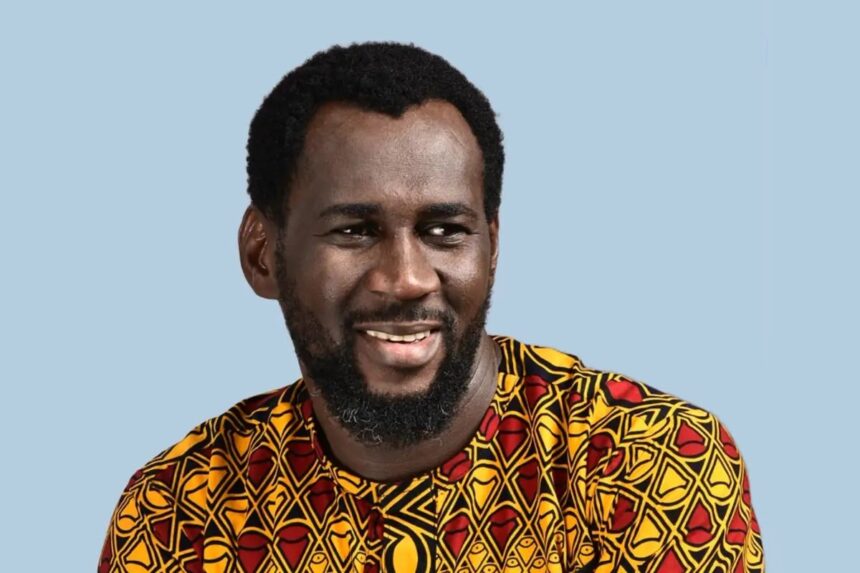For years, the story of Nigeria’s startup ecosystem has been written almost exclusively in Lagos. The city’s reputation as Africa’s “Silicon Lagoon” has overshadowed entrepreneurial efforts in other parts of the country. But Uche Aniche, founder of #StartupSouth, has made it his mission to challenge that narrative.
His approach is simple but radical: innovation should not be confined to one city. By mobilizing resources, mentorship, and global connections for founders in Nigeria’s South-South and South-East, Aniche is building a platform where regional entrepreneurs can thrive on their own terms.
Aniche’s work with #StartupSouth goes beyond organizing conferences. He frames his mission as ecosystem development—bringing together investors, mentors, policymakers, and founders to create a supportive environment.
“Innovation is not just about apps or code,” he often argues in interviews. “It’s about building systems that allow people with ideas to grow those ideas into sustainable businesses.”
The group has convened multiple regional gatherings, most recently in Owerri and Port Harcourt, attracting speakers and mentors from around the world. These events are designed to do more than inspire; they aim to connect local startups to real opportunities, from funding to global partnerships.
A Regional Push with National Implications
The choice of South-South and South-East as focal points is deliberate. While Lagos has been the default hub, Port Harcourt was recently ranked fifth among Nigerian cities in a global startup assessment. To Aniche, this is evidence that innovation thrives wherever there is talent and opportunity—if the ecosystem is nurtured.
The push to strengthen startups in these regions, he says, is not just about fairness but about unlocking national potential. “Nigeria cannot build a strong digital economy if it depends on one city,” he has emphasized. “Decentralization is essential for resilience.”
Critics often dismiss large gatherings as “talk shops.” Aniche acknowledges this risk but insists that #StartupSouth’s model is different. The platform’s conferences are structured around mentorship, workshops, and follow-up opportunities. The focus, he says, is on equipping founders with tools that endure after the event banners come down.
In practical terms, this has meant exposing entrepreneurs to investors, linking them with experienced founders abroad, and even lobbying for more regional attention from policymakers. “If you look closely, what we are building is a support system, not just a stage for speeches,” he explains.
The Challenges of Going Regional
Still, the road is not without obstacles. Startups outside Lagos face limited access to venture capital, poor infrastructure, and political uncertainty. Investors are often reluctant to commit funds to regions they perceive as riskier.
There is also the perception bias: that “serious” startups must emerge from Lagos. For Aniche, this bias is not just inaccurate but harmful, as it undermines the confidence of entrepreneurs building in other cities.
To counter these challenges, #StartupSouth emphasizes resilience and resourcefulness, urging founders to see local constraints as opportunities for creative solutions. But Aniche is clear-eyed about the limits of grit alone. Without sustained funding and structured support, ecosystems risk stagnation.
The conversation goes beyond regional pride. Nigeria is positioning itself as a leader in Africa’s digital economy, with tech contributing significantly to GDP. But a system that depends disproportionately on Lagos is inherently fragile.
If talent in Port Harcourt, Owerri, Aba, or Uyo continues to be overlooked, the country risks losing potential innovators to migration—whether to Lagos, Europe, or North America. This “innovation drain,” as some analysts describe it, could weaken Nigeria’s competitiveness in the long term.
Aniche’s push for decentralization is therefore both economic and strategic. By spreading opportunities across regions, he argues, Nigeria can build a more balanced and resilient tech sector.
Why It Matters
What does the future hold for Uche Aniche and #StartupSouth? The organization has hinted at expanding its model beyond Nigeria, potentially linking underserved ecosystems across Africa. This would position Aniche as not only a national but a continental advocate for decentralized innovation.
For now, the immediate focus is sustaining the momentum from its conferences. Mentorship programs, funding pipelines, and structured accelerators are next on the agenda. The hope is to move from inspiration to measurable impact—where startups from SS/SE can scale, attract funding, and create jobs locally.
In a country where narratives are often shaped by Lagos, Aniche’s work represents a necessary disruption. It challenges investors, policymakers, and even fellow entrepreneurs to rethink what “the Nigerian startup story” really means.
The question is whether the wider ecosystem will respond. If Nigeria truly wants to lead Africa’s digital future, it cannot afford to treat decentralization as a side project. The stakes are too high.
Talking Points
Let’s face it: Nigeria’s tech ecosystem has been written like Lagos is the only chapter. That’s not an ecosystem—it’s a monopoly. Uche Aniche is right to disrupt this narrative, because any economy that pins its digital hopes on one city is building on shaky ground.
We’ve seen the cycle: big conferences, flashy speakers, trending hashtags. But do they actually change lives? The uncomfortable truth is that many don’t. What makes #StartupSouth different is its attempt to build ongoing systems of mentorship and funding. Still, the test is simple: in five years, will we see thriving companies or just nice photos?
In Nigeria’s South-South and South-East, startups aren’t just “cool tech experiments.” They’re survival strategies against joblessness, poor infrastructure, and political neglect. That’s why dismissing these regions as “secondary markets” is not only wrong—it’s reckless. If they fail, the national economy loses resilience.





